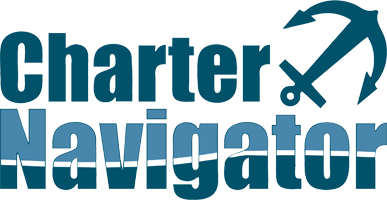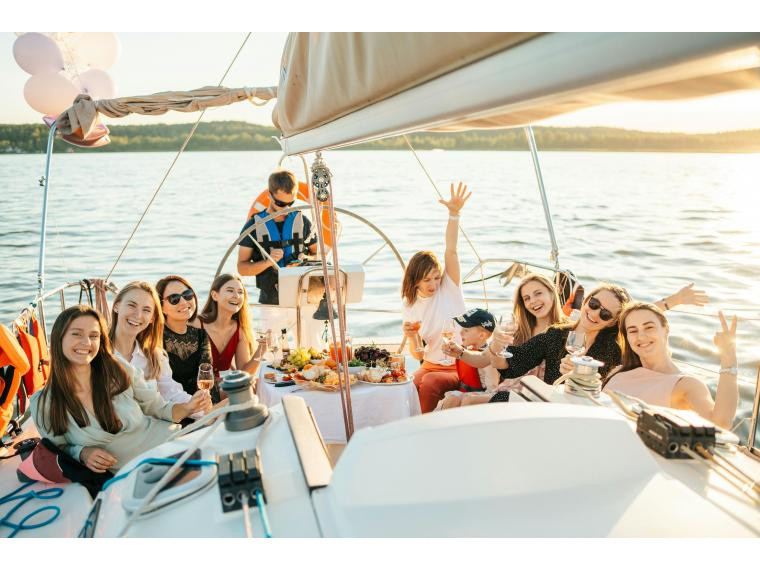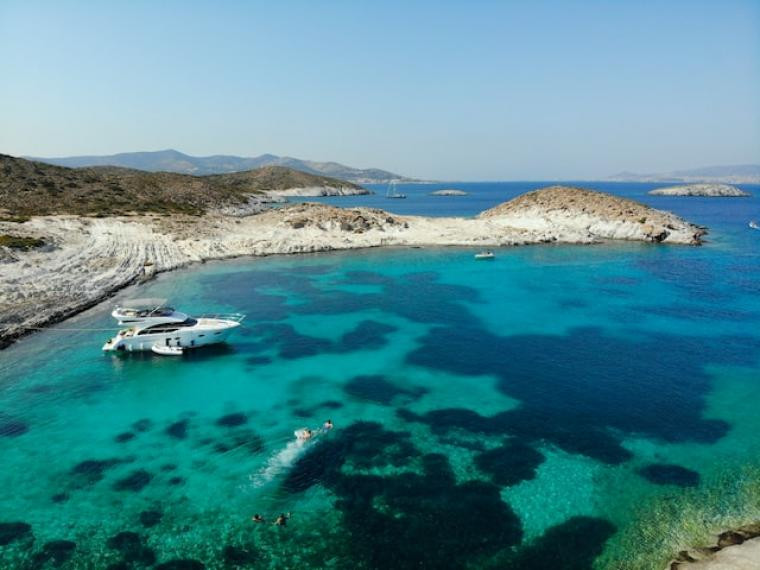Yacht or catamaran - which rocks more?
Both single and double hulls can provide a very pleasant sailing holiday, which, however, does not change the fact that each of these options has its own specifics. The first thing you should pay attention to is the crew's experience - the resultant of the performance and the level of rocking. How does it look in practice?
The design of the catamaran is well thought out to ensure the greatest stability on the water. Its two hulls basically work as one very wide one - the boat behaves like a cat standing on its legs with its claws extended: it will hold almost anywhere. In short, the double-hull rocks much less, which can be very good news for all those who are under sail for the first time and are afraid of seasickness or going overboard when heeling. Of course, both happen really rarely, but let's be honest: a novice always sees a black scenario and has the right to be concerned.
In a confrontation between a yacht or a catamaran, the latter option should theoretically win - but it's not so easy. Note that a monohull boat that can heel provides much better performance, and thus - gives a better experience and greater pleasure from sailing. OK, the price for this is rocking - but some people just want to feel one with the waves and the element. So for now we have a draw.
Catamaran, yacht and comfort
If you are going on vacation, you probably want to enjoy blissful relaxation during them - just like your crew. Considering the level of comfort on or below deck, it's fair to say that the catamaran beats the monohulls.
Two hulls plus a trampoline placed between them will always provide more space than one. So you will be able to sunbathe in peace (and without disturbing the rest of the crew in steering the boat), lay out a blanket, toys for kids, etc.
Inside the boat there will also be more cabinets, lockers, lockers and sofas. Such "space plus" - good news for large or not very well-coordinated crews. And here we come to another important advantage: on a large boat with two hulls, you can easily relax from the company of other people, and not sitting locked in a cramped cabin. In terms of comfort (also psychological), a yacht or catamaran is won by a double-hull.
Yacht and catamaran licenses
In terms of formal requirements, both of these solutions are at the same level - in order to steer a boat on the sea, you must have at least a yacht helmsman's license. The exception to this rule is Croatia, where additionally someone from the crew - not necessarily the captain - must have an SRC radio operator certificate (regardless of whether it is a yacht or a catamaran).
However, it is worth bearing in mind that sailing a double-hull boat is slightly different from driving a single-hull boat. And because there are fewer catamarans, relatively few people have experience sailing them. So, can an average sailor handle them? Probably yes - the problem is that the beginning can be a bit stressful.
A catamaran is wider than a monohull, so the first problems may arise when leaving the port. Moreover, maneuvering a boat with two hulls (and therefore two engines) requires slightly different skills - to make a tight turn you have to think like a tanker and put one engine forward and one engine backward, similar to the tracks on a tank. Taking into account the ease of maneuvering (especially at the beginning of the voyage), the competition "yacht or catamaran" is settled in favor of the monohull.
Which is cheaper - a yacht or a catamaran?
It is hard to deny that funds are an important element of voyage planning - and thus also choosing a vessel. So what will be cheaper - a yacht or a catamaran?
Double-hulls are usually larger, so there are more crew on them. It follows that the costs of chartering or berthing in ports will be shared by more people. So is this an option for thrifty?
Unfortunately not. Catamaran rental prices are significantly higher than monohull boats. There are simply fewer double-hulls (there are usually about 20 catamarans per 1,000 units), and low supply is not conducive to lowering prices.
However, this is not the end: when estimating expenses during the cruise, you must also take into account the costs of stopping in ports. Here, too, you have to take into account higher fees, which is understandable, because a wider boat takes up more space.
Yacht or catamaran - what to choose?
Certainly, the choice of one of these solutions should be well thought out. So let's sum it up: a monohull is cheaper to operate, easier to maneuver and provides better performance. It will certainly be a good option for crews who want to feel the pleasure of sailing, do not expect excessive comfort and have to take into account the costs.
On the other hand, a catamaran is more expensive, but it offers more space and provides much greater stability, as well as prestige - sailing on such a vessel, you will certainly attract the attention of other sailors. It should be considered a good option for crews that sail with children and focus on rest and relaxation rather than stunning performance.
Of course, the above considerations are just guidelines. Remember that the final choice between a monohull and a double hull is always up to you and your crew. And if you can't decide whether it will be better to choose a yacht or a catamaran, there is nothing left for you but to take ... two cruises. Each on a different boat. This will not only give you more sailing, but also something much more important: first-hand knowledge.

 One of the "first world problems" is the annual dilemma of sailors going on a cruise - which is better: a yacht or a catamaran? If you are also struggling with this question (lucky guy!), then you are in the right place. Here you will find a brief overview of four important aspects that must be considered when making this type of decision.
One of the "first world problems" is the annual dilemma of sailors going on a cruise - which is better: a yacht or a catamaran? If you are also struggling with this question (lucky guy!), then you are in the right place. Here you will find a brief overview of four important aspects that must be considered when making this type of decision.











